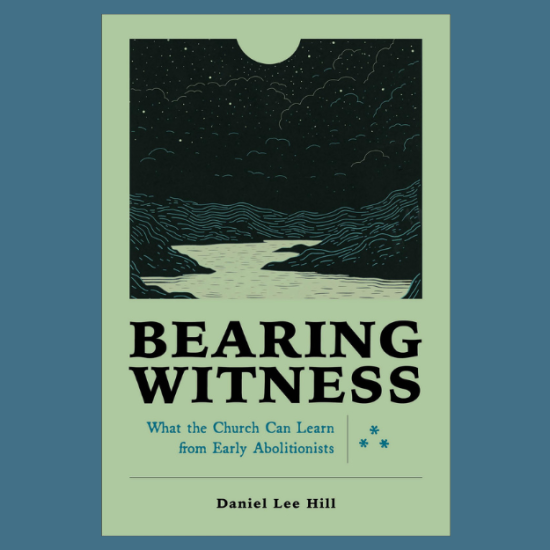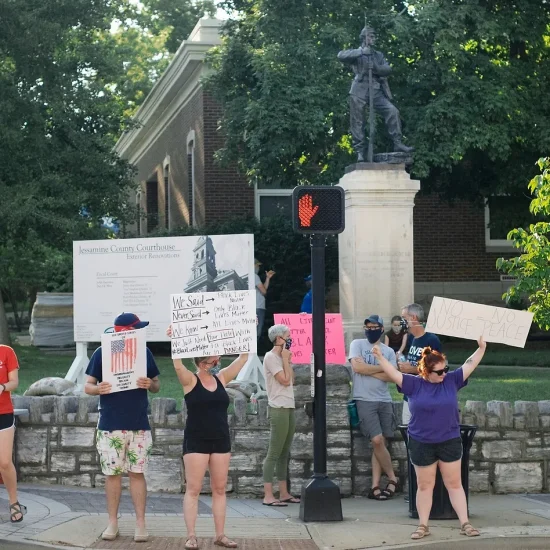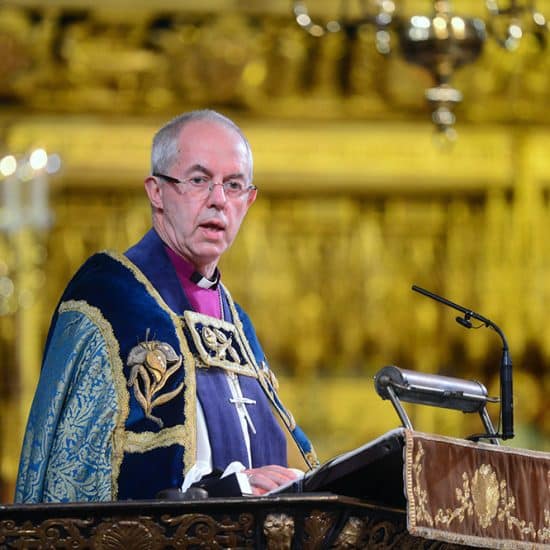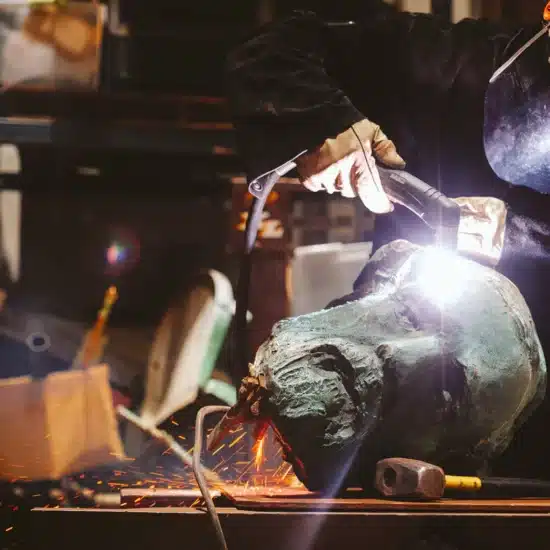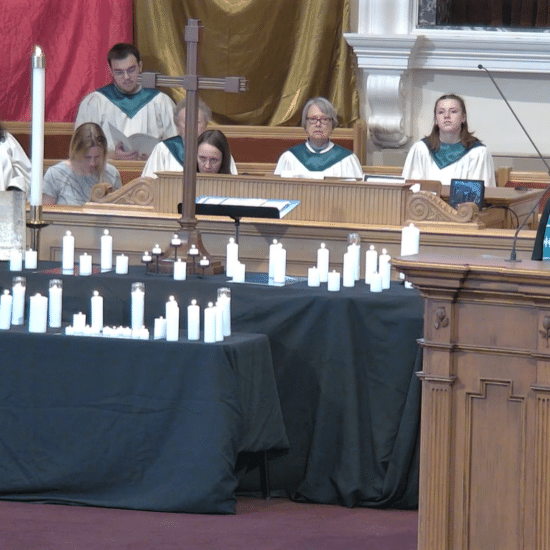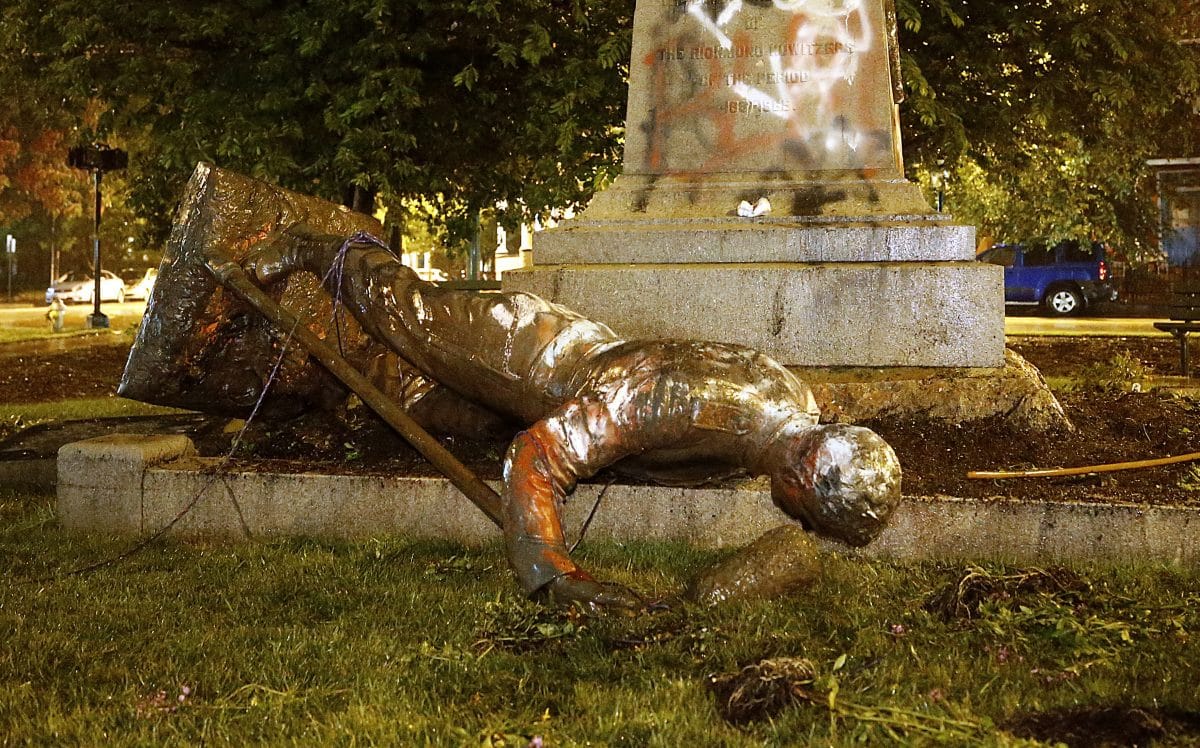
Jonathan Wilson-Hartgrove, a Baptist minister in North Carolina, sees the removal of Confederate monuments across the country as “very biblical.” The author and activist talked about faith, racism, and advocacy on the latest episode of the Word&Way podcast “Baptist Without An Adjective.”
During the “Black Lives Matter” protests that spread across the country in recent weeks after the police killing of George Floyd in Minneapolis, Minnesota, many Confederate monuments have been defaced, toppled by protesters, and removed by officials. At least 20 such monuments have been removed in eight states this month, as have several statues of Christopher Columbus. And in the United Kingdom, some statues of slavetraders have also been removed.
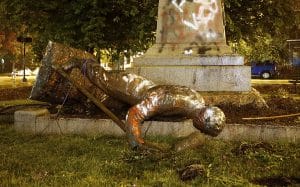
A statue from the Richmond Howitzers Monument in Richmond, Virginia, lies after being toppled June 16, 2020. (Alexa Welch Edlund/Richmond Times-Dispatch via AP)
Wilson-Hartgrove sees it as an important “conversion” to “realize that the gods you have worshiped have been killing you, and so you have to do something about it.”
“I’m a biblicist. I’m a Baptist. I was raised on the Bible,” he explained. “So, when I see people pulling down statues from the Asherah poles, I go straight to the Old Testament. This is very biblical.”
Wilson-Hartgrove noted that since “a lot of Christianity in this country — particularly white Christianity” — has “been carefully guided to respect law and order above all else,” many people are “uncomfortable” when monuments are torn down by protesters. Thus, he fears that in white Christianity we “have associated ourselves so much with the governing authorities that we can’t imagine what it’s like to be on the receiving end of the violence that these systems have created, in this country particularly for black, brown, and poor people.”
“If you feel discomfort when you see people radically questioning public systems that have been killing them, then you should go back and read the Exodus story and read it from the perspective of how would you have felt if you were an Egyptian,” he added. “Go back and read the story of Israel while in exile—whether in Babylon or Persia or wherever—think about how you would have read it if you were a Babylonian, if you were a Persian.”

Jonathan Wilson-Hartgrove speaks at Koinonia Farm near Americus, Georgia, in 2012. (Brian Kaylor/Word&Way)
Wilson-Hartgrove said that while he believes the U.S. needs “revolutionary change” that includes efforts to “destroy the idols that represented white supremacy,” he also prays it’ll be a nonviolent movement. He recalled going to downtown Durham a few years ago right after his city removed its Confederate monument. Seeing the space reclaimed, he said, “was a beautiful representation of our city” and a way of “celebrating a new kind of future.”
Recounting the history of Confederate monuments, Wilson-Hartgrove called such memorials “symbols of a lie that we’ve been told, that we’ve told ourselves about what happened in the past and about what Christianity did in response.” In particular, he sees this as part of the continuing “slaveholder religion” (a term from the subtitle of his 2018 book Reconstituting the Gospel). He hopes white Christians today can find ways to read the Bible that don’t follow the patterns of the theology employed by slaveholders.
Connecting the danger of slaveholder religion to Confederate monuments, Wilson-Hartgrove explained that the Christianity that justified slavery before the Civil War as “essentially the same” as that which after the War overthrew Reconstruction in the South, backed “white supremacy governments,” and then installed these monuments during the time of Jim Crow.
“These monuments need to come down because they are symbolic of the compromise not only of our constitutional commitments but of our faith commitments to white supremacy,” he added. “It is a time for smashing idols. And I believe, as a Christian, that there’s a great biblical precedent for that. And so, I celebrate when I see the monuments come down.”
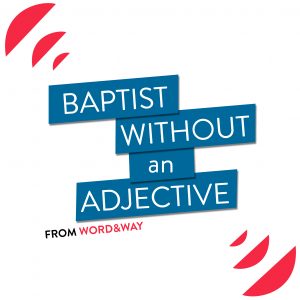 NOTE: Hear more about this topic and much more from Wilson-Hartgrove in the latest episode of Word&Way’s award-winning podcast “Baptist Without An Adjective.”
NOTE: Hear more about this topic and much more from Wilson-Hartgrove in the latest episode of Word&Way’s award-winning podcast “Baptist Without An Adjective.”

